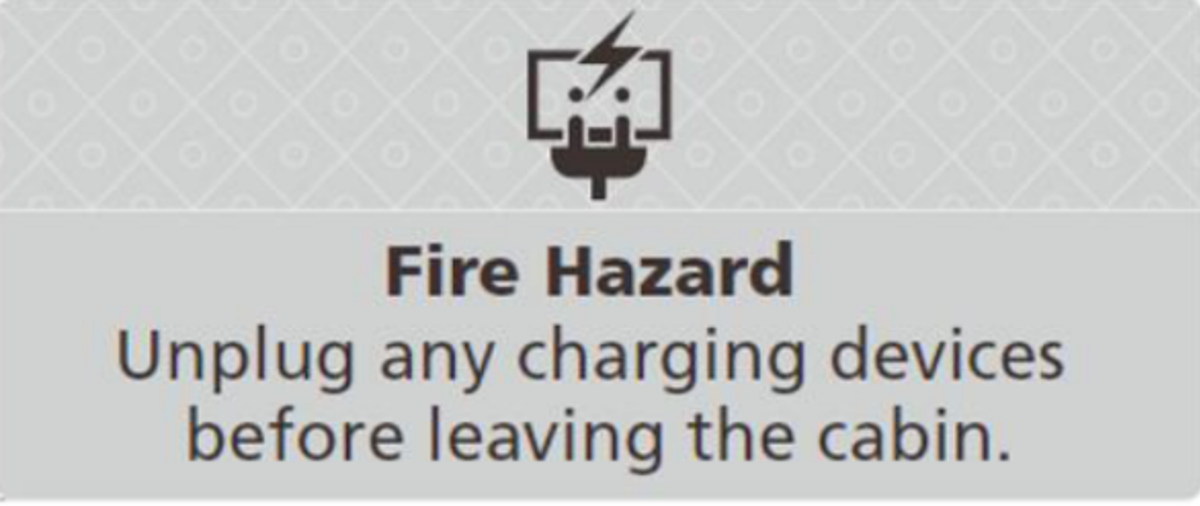Fire hazard posed by personal electronic devices
- Safety Flash
- Published on 28 October 2019
- Generated on 18 July 2025
- IMCA SF 25/19
- 1 minute read
Jump to:
A fire incident occurred in a seafarer’s cabin due to a faulty mobile phone charger.
What happened?
The charger was left plugged in while unattended and an electrical short circuit ignited some paper on a desk. Similar incidents can occur with other personal electronic devices, such as laptop computers, radios, and gaming systems.
Fires reported involving personal electronic devices have been attributed by the following causes:
- Inappropriate use of an electronic device.
- Use of defective electronic devices and extension cords.
- Overloading an extension cable or multi-outlet adapter.
- Overloading electrical circuits by plugging too many devices into a single outlet.
- Storing combustible materials (such as paper and clothing) on or under electrical devices.

What actions were taken?
The Master was to remind all crew to:
- Unplug electronic devices when unattended or not in use.
- Inspect electronic devices and associated cords before use.
- Not to store any flammable or combustible materials on or under electronic devices.
- Ensure that voltage and frequency of an electrical device is compatible with the vessel electrical system.
Featured Safety Flashes
-
IMCA SF 24/16
20 September 2016
-
IMCA SF 18/18
23 August 2018
-
IMCA Safety Flashes summarise key safety matters and incidents, allowing lessons to be more easily learnt for the benefit of the entire offshore industry.
The effectiveness of the IMCA Safety Flash system depends on the industry sharing information and so avoiding repeat incidents. Incidents are classified according to IOGP's Life Saving Rules.
All information is anonymised or sanitised, as appropriate, and warnings for graphic content included where possible.
IMCA makes every effort to ensure both the accuracy and reliability of the information shared, but is not be liable for any guidance and/or recommendation and/or statement herein contained.
The information contained in this document does not fulfil or replace any individual's or Member's legal, regulatory or other duties or obligations in respect of their operations. Individuals and Members remain solely responsible for the safe, lawful and proper conduct of their operations.
Share your safety incidents with IMCA online. Sign-up to receive Safety Flashes straight to your email.